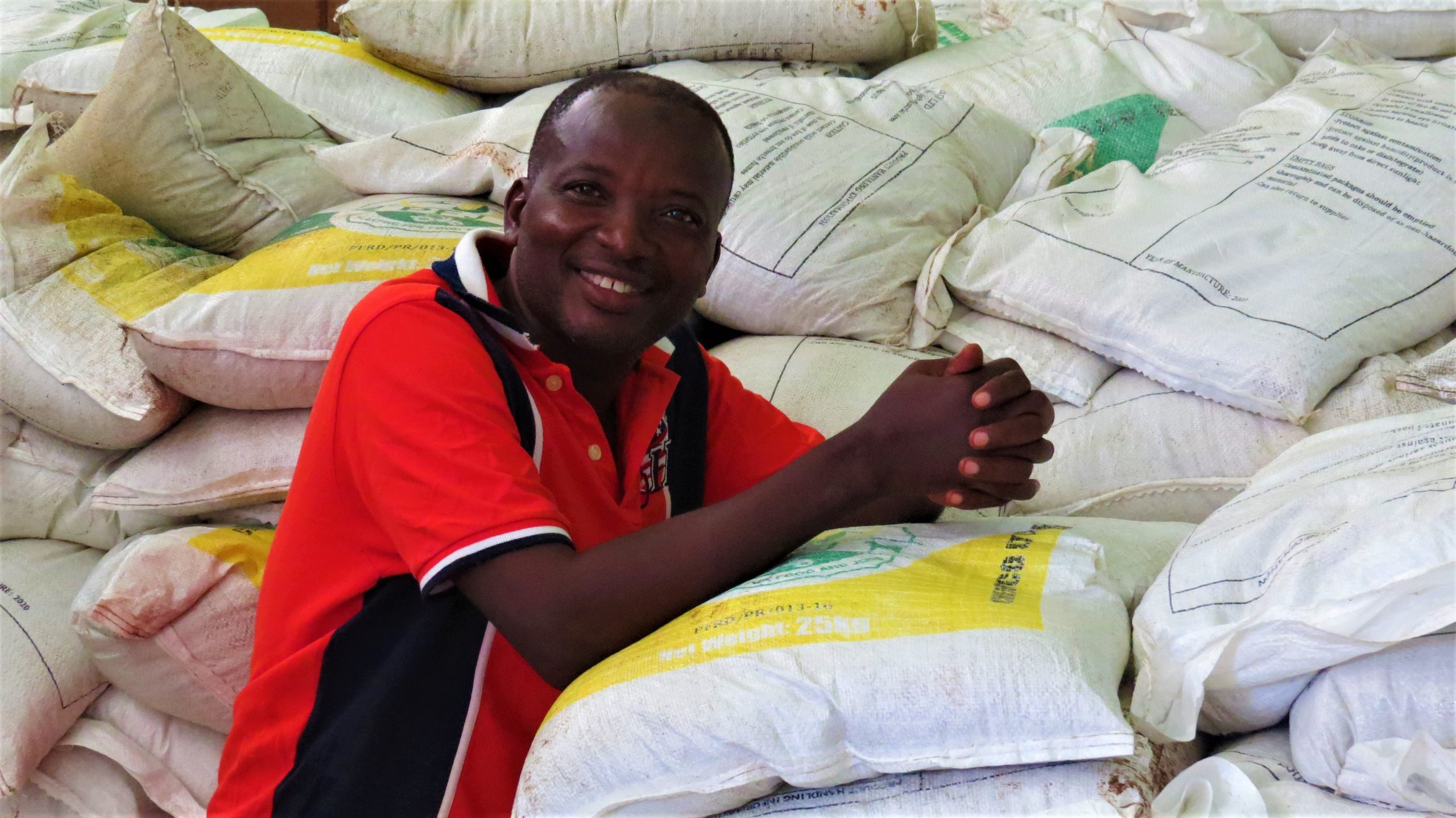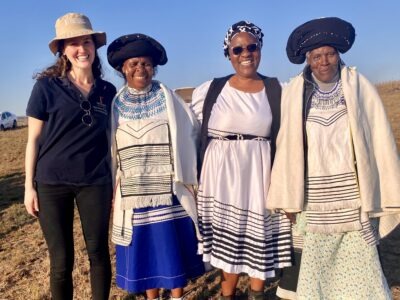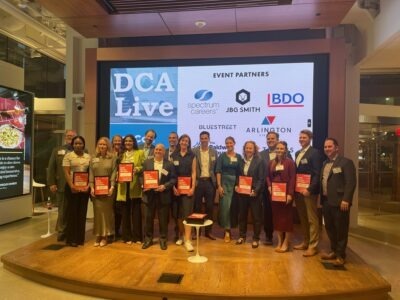
In Ghana, farmers’ use of imported hybrid seeds has grown over the last decade. This type of seed produces higher crop yields and tends to be more profitable, despite being more expensive than its domestically bred counterparts. The increase in its use is possible because of agricultural inputs purchased on credit, as facilitated by the Feed the Future Ghana Agricultural Development and Value Chain Enhancement II (ADVANCE II) Project, which is funded by USAID and implemented by ACDI/VOCA in Northern Ghana.
However, the COVID-19 pandemic disrupted supply lines for imported hybrid seeds, creating a shortage in the market. Outgrower business owners, who provide the input credit to outgrower farmers, had to adapt and rely on locally produced hybrid and open-pollinated seed varieties, which tend to result in lower yields. Under normal circumstances, sponsors and financial institutions that support these outgrower schemes would provide the financing needed for seeds and other inputs before the season began. They would then collect repayment from farmers after the harvest.
Pandemic disrupts access to hybrid seed
With the wave of uncertainty caused by COVID-19, most sponsors suspended this credit, partly because of the seed shortage and partly out of concern that farmers would not be able to repay their loans. Without this credit, many farmers lacked the inputs they needed to plant their crops and secure their incomes for the year. Despite the pullout of some sponsors, others saw it as an opportunity to expand their business.
Sintaro Mahama, an outgrower business owner and secretary of the Northern Outgrower Business Network, decided to take the risk and increase his credit to his smallholder outgrowers. He did so under the guidance of the Feed the Future Ghana ADVANCE II Project.
“COVID-19 has been a real challenge. Farming is a continuous process, and, with the limitations the virus comes with, we have been faced with delays and lack of certain items but are trying to make the best of it.”
–Sintaro Mahama, outgrower business owner
To make this possible, first, Sintaro had to sell his produce from last year’s 125-ton harvest at a lower price due to COVID-19 disruptions. The price of maize had dropped from about US$320 to US$240 per ton since January 2020. Sintaro invested what he earned from the sale in equipment for his farm. He also entered into an agreement with Agricare, a feed processing company, to procure 40 hectares-worth of production inputs, of which he gave 30 hectares-worth to 30 outgrowers and used the remaining inputs on his own farm.
“COVID-19 has exposed the need to boost the capacity of our local seed production to avoid the shocks of over-reliance on imported seed.”
–Sintaro Mahama, outgrower business owner
As soon as restrictions began to ease, Sintaro coordinated tractor plowing services on credit for his 91 outgrowers, including 33 women and 58 men, with priority given to female farmers. In the end, he successfully plowed and planted his own fields for the 2020 planting season.
Like Sintaro, 141 outgrower business owners are collaborating with the Feed the Future Ghana ADVANCE II Project to mitigate the effects of the pandemic on food production in Northern Ghana. They remain hopeful of a good harvest to avoid food shortages in the coming months.
Learn more about the Feed the Future Ghana ADVANCE II Project.
Learn more about our work in Ghana.





